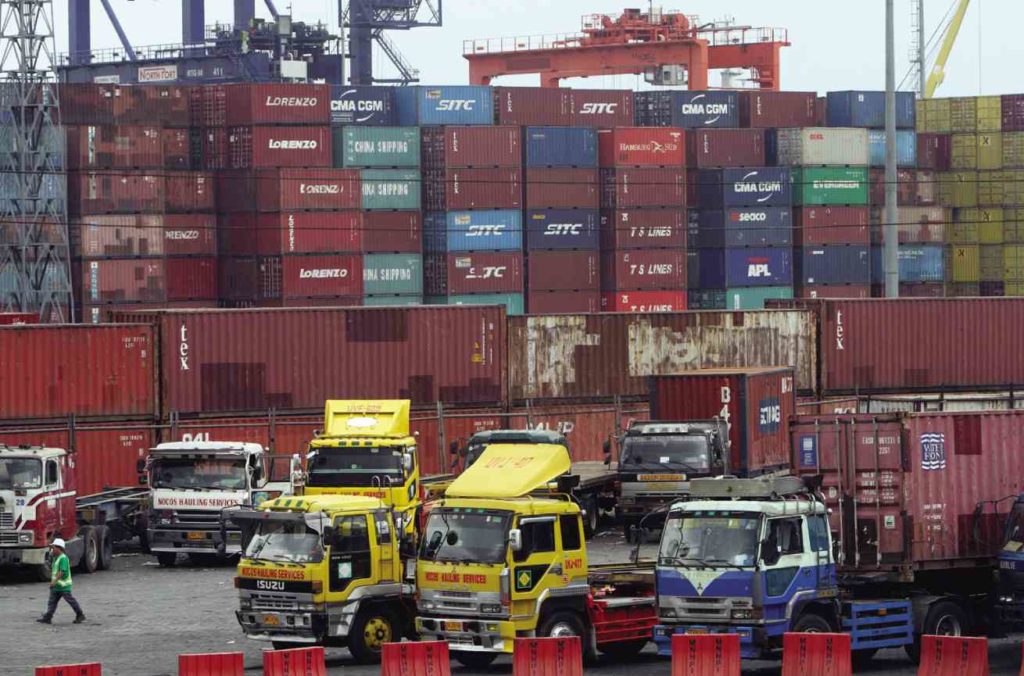The port is a security area where only authorised persons should be allowed entry.
One of the greatest threats to the safety and security of goods and persons at Nigerian ports today is high human and vehicular traffic. The reasons why large number of people go into the ports daily are the high rate of physical examination of cargoes which requires the presence of the importer or his agent and manual processes in the logistics chain.
It may be recalled that some jetties and port facilities in the country were recently found to have fallen short of provisions of the International Ship and Port Facility Security Code (ISPS Code). This was due in part to the high influx of people into the ports.
The ISPS Code is a comprehensive set of measures to enhance the security of ships and port facilities, developed in response to the perceived threats to ships and port facilities in the wake of the 9/11 attacks in the United States.
The Code takes the approach that ensuring the security of ships and port facilities is a risk management activity and that, to determine what security measures are appropriate, an assessment of the risks must be made in each particular case. The purpose of the Code is to provide a standardised, consistent framework for evaluating risk, enabling Governments to offset changes in threat with changes in vulnerability for ships and port facilities through determination of appropriate security levels and corresponding security measures. Controlled movement of persons in and around port facilities is essential in attaining the objectives of the ISPS Code.
Despite provisions of the ISPS Code, many Nigerians are yet to understand the importance of staying away from the port environment when they have no business to be there.
Apart from regular port users, the facilities have become hangout arenas for many young Nigerians. Hawkers, vulcanisers, mechanics, panel beaters, food vendors, commercial motorcyclists and tricycle riders all find it convenient to carry out their trade around the port.
The Western Zone of the Nigerian Ports Authority and the Lagos Port Complex Apapa have over the past few years campaigned vigorously against hawking and other unauthorised activities at the port. Orders have been issued and billboards placed around the ports in Lagos warning unauthorised persons to stay away from the facilities. Policemen attached to the Western Port Police Command have carried out raids, arresting and prosecuting defaulters of the NPA order. Despite these however, the number of people going into and loitering around the port environment is still unacceptably high.
Recently, the management of Lagos Port Complex Apapa under the Port Manager, Hajia Aisha Ali-Ibrahim, took a major step by relocating a Customs gate office were clearing agents flocked to the periphery of the port, in an attempt to control human traffic at the nation’s premiere port. It is a known fact that many clearing agents find it convenient to be at the port even when they have no particular cause to do so.
Since a good number of those who loiter around the port claim to be clearing agents, it has become compelling for the various freight forwarding associations to educate their members to desist from such acts as it is inimical to smooth port operation and poses a threat to safety and security.
The freight forwarding associations must also issue identity cards to their members to distinguish them from touts parading as agents. The Nigeria Customs Service and the freight forwarding associations have the responsibility of supporting the Nigerian Ports Authority to rid the port environment of the high human and vehicular traffic that have become recurring menace in the system.
Copyright Ships & Ports Ltd. Permission to use quotations from this article is granted subject to appropriate credit given to www.shipsandports.com.ng as the source.

